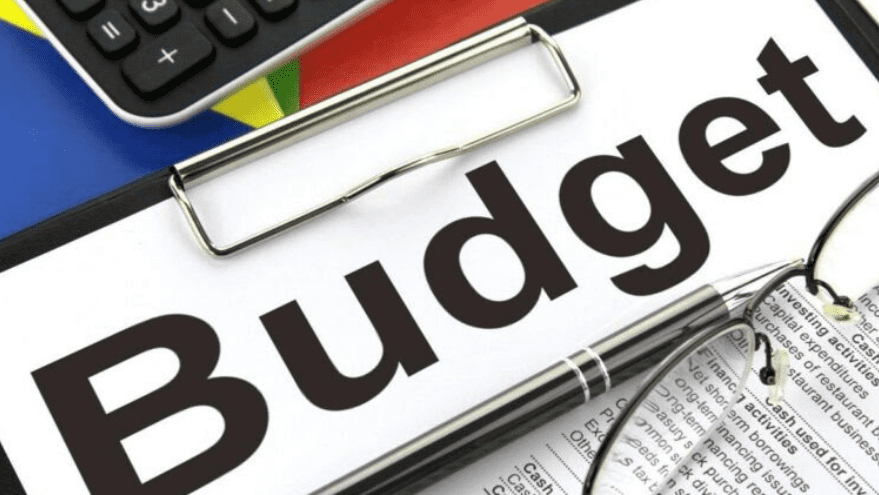According to a study by HSBC, about 75% of the UAE population is unhappy with their savings. That’s way too many people. The reason behind this is lacking an effective budget plan. So, to help you better understand the dynamics, we will look at how to tackle budgeting and spending to get you on track for a healthy-looking account.
Whilst we know that ‘living below your means is the way to balance your account in your favor, this can often be harder than it seems. Everybody has their own wants and needs, and it’s all about balancing them out.
The key to effective budgeting is: to be honest with yourself, have a clear sustainable plan, and a realistic goal. Let’s face it, everybody wants to be a millionaire but depending on your budgeting plan, spending habits, and investments – that may never happen.
So, what makes budgeting so important?
- It can help you reach your financial goals, whatever it might be.
- Stretch your money’s lifespan, so no more living paycheck to paycheck.
- Make your money work for you by making your savings start generating money for you.
- Make better lifestyle decisions, so that you know when to treat yourself and when not to.
- And most importantly, feel happier, because there’s nothing more comforting knowing that you’re financially stable and healthy.

Give yourself a financial health check.
First thing’s first, give yourself a financial health check by asking yourself a few questions.
Do you have any debt that you need to work towards clearing? If you purchased a house on a mortgage for your new family, that’s a debt that needs to be paid out first. Maybe you started a business through a bank loan, or you spent a little too much on the weekends and have credit card payments due.
Know your spending habits. What exactly are your wants and needs? For example, you WANT to buy a Gucci belt, but do you NEED the Gucci belt? Probably not, because you either already own a belt or could get a more affordable one.
Be realistic about how much you’re earning versus how much you’re spending. If you’re earning a salary that can’t support your previous lifestyle/the lifestyle you wish you had, learn to adapt to it and work towards your targeted lifestyle. Investing in yourself through training and education, and more importantly, strict financial discipline will help you achieve your goals.
Budget your expenses
It’s time to really look at your monthly expenditure. Break down your expenses into two categories:
1) Fixed Expenses: These are expenditures that are fixed each month, such as your rent, utility bills, phone bill, debt, and subscriptions. It’s also worth accounting for any fixed costs that may not occur on a monthly basis and dividing it by a monthly amount to ensure no surprises arise.
2) Variable Expenses: These are expenditures that vary such as food, travel, money used for going out. It’s useful to record them into subcategories in order to assess how much of where you spend your money is necessary.
Now that you’ve worked out your total income and your total expenses, simply minus your total monthly expenses from your total monthly income – does your income cover your expenses?
If you’re breaking even, that’s not sustainable. It’s time to start looking at ways to cut down your expenditure in order to start saving more and getting towards our financial goals.
If you’re coming out with a negative number, you obviously need to either earn more or spend less. It’s a lot easier to spend less, so first, start reducing your variable expenses by maybe ordering out less or spending less if you’re going out. You can cook at home or can go to a less expensive restaurant or store. You can even cut some fixed expenses as well by canceling some of your non-essential subscriptions. If you’re not reading a specific magazine enough or aren’t watching enough Netflix and prefer Amazon Prime, then cancel your Netflix subscription.
If you’re left with a positive number, this is called your disposable income. This money needs to be used towards either saving each month, investing, or a bit of both – doing so will help you meet your financial goals.
Make sure you’re committed to your budget
A budget is only as good as your commitment to it! Be realistic about what you need, and how much it costs. Cover your essentials first, if you’ve included savings in your budget then make sure you pay yourself first into a savings account so that the temptation to spend it isn’t there. Sometimes, we’ve gone over budget, we’ve all been there. A friend from out of town visits and you want to show them a fun time, or something you want is on sale but it’s still a bit out of your budget. You can show your friend a fun time without breaking the budget and there will always be another sale at a better price.
Being able to comfortably meet your wants, without sacrificing your needs and breaking your budget, is the eventual end-goal of successful financial planning and effective budgeting.
Develop and follow a clear plan.
One of the best methods to help you stick to your budget is to visualize your end goal, this can help you to prevent any tendencies to overspend in the present.
There are many different methods that can be used in order to help you budget your expenditure more efficiently, and not all methods will be right for all individuals.
One method is the 50/20/30 rule coined by Elizabeth Warren – a bankruptcy expert and US senator. The rule helps people achieve greater financial stability by spending their monthly income in 3 categories:
50% of your income to expenses that are needed, such as food and living costs
30% of your income towards things you want, these can be items you wish to purchase or upcoming holidays
and 20% going towards repaying debts, investing, and saving for the future.
If you’d like to visualize your budget, make sure to check out websites like Budget Planner and Nerdwallet.
Another thing about budgeting is that saving isn’t the only way to be financially healthy. Most saving accounts at banks don’t provide enough interest to protect your money from inflation, which can reduce the value of your hard-earned money.
A great way to protect your savings is by investing. There are great asset classes like stocks that can help you utilize your capital more effectively than leaving it to carry dust.
However, the stock market is a Darwinian place and carries a lot of risk and volatility. Other asset classes like bonds may not be worthwhile unless you have significant capital, or cryptocurrencies which are far too volatile and time-demanding for many retail investors.
Mastering Your Budget Is Key
Previously, you could only invest in real estate if you had a significant amount of capital. It’s an effective asset class to invest in because it is a great hedge against inflation and can generate a consistent passive income through rental income and even via capital appreciation when the property is sold.
However, thanks to fractional property investing platforms like smartcrowd.ae, where multiple investors pool together capital to invest in real estate, you can smartcrowd.ae in Dubai real estate for as low as AED 500.






